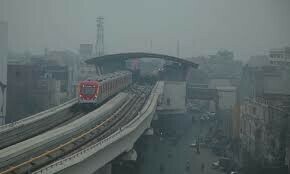LAHORE: Chief Minister Usman Buzdar has formally unveiled the Punjab government’s five-year education policy entitled “The New Deal 2018-23” to transform school education with a focus on improving, learning, access, retention and equity and governance.
A ceremony was held at 90-Shahrah-i-Quaid-i-Azam on Thursday. Provincial ministers, MNAs and MPAs, secretaries, educationists, teachers and students attended the ceremony.
Under “The New Deal” the challenges include enrollment of 4.8 million children estimated to be out of school in Punjab, to construct 5,000 classrooms against a target of 20,000 classrooms, to enroll 50pc of 3-4 year-old children in any form of early education and retention. The government vowed to improve access, retention and equity through innovative and contextualized solutions and improve and scale high quality pre-primary education by setting up child-friendly classrooms.
The chief minister said there was a class-based education system in the province and the five-year plan would end it and provide equal facilities to the students of remote cities such as Rojhan, Koh-i-Suleman and Rahim Yar Khan.
He said the government would take measures to upgrade education and would make heavy investment in it because the education sector was ignored during the last 70 years. “We will give top priority to education to secure future generations by investing in it,” he said.
Mr Buzdar said practical steps were needed to transform education because the future of 28 million students was directly linked with their strategy and policies. “There are around 52,000 public schools in the province and around 12 million children were enrolled in it. We want to secure the future of the children through a composite strategy,” he said.
He said they would have to give equal opportunities to all the students and would have to bring back all the drop-outs to the schools without discrimination on the basis of their colour, caste and creed.
The chief minister said the national language could be the effective means of communication and therefore, primary level education would be imparted in Urdu while English would be taught as a subject under ‘The New Deal.’
He said the PTI government had included Iqbal Studies in syllabus and also introduced other modern trends like science technology, engineering, arts and math at the middle level.
He said the steps were being taken to remove the shortcomings in the educational system.
The chief minister said during different surveys they came to know that most of the children left school after completing primary and did not attend middle and high classes due to shortage of such schools in the province. “We have ‘Insaf Afternoon School Program’ to provide education to out-of-school children,” he said.
He said the new education policy would eliminate the segregation in the education system and all the students of elite private schools, small and medium-scale private and the public would get same education. He said the children should be educated within the realm of national ideology and culture to learn about their socio-cultural responsibilities to emerge as the useful citizens of society. He said programmes were also being introduced to improve the capacity of the teachers to improve the quality of education. He said the government was planning to bring about necessary amendments to “The Punjab Free and Compulsory Education Act 2014” and would make sports, physical training and clean drinking water compulsory in the schools.
He said Punjab was the first province in the country to introduce new education policy and a committee would be set up to implement and achieve the desired objectives of the policy and he would also monitor the progress.
Punjab Minister for Schools Education Murad Raas said education reforms were being introduced with a new approach. He said they had identified the ills in the system and would fix them through the new policy.
Published in Dawn, February 22nd, 2019















































